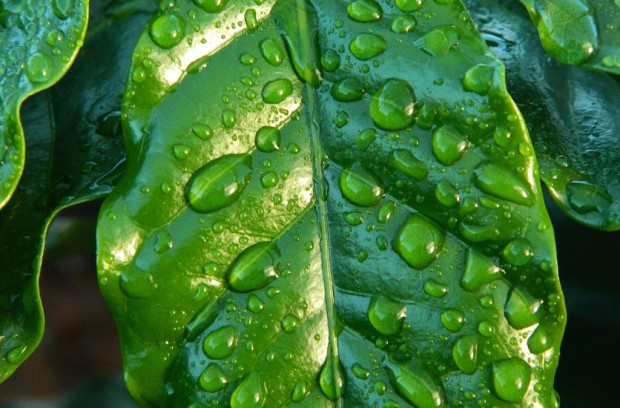In May, Pope Francis published Laudato Si (Praised Be), his encyclical on the environment. This treatise is the continuation of a body of teachings on critical social, political and economic themes by Popes that form Catholic Social Teaching. The first encyclical (Rerum Novarum) was published in 1891, and dealt with capital and labor. Laudato Si is brilliant and practical — 150 pages, 250 paragraphs.
Here I’m pasting sections from the chapter called Integral Ecology.
What’s this have to do with coffee and water? Everything. Coffee and water are part of an integrated social and natural system, where the interaction of people with their environment directly affects the “ecosystem services” that flow from coffeelands, including both coffee and water.
As I share parts of the letter, many people — Catholics and non-Catholics alike — are surprised that this was written by a Pope. But while Francis’ letter is revolutionary, it is not actually a departure from Catholic Social Teaching. In fact, it explicitly builds on the writings and speeches of John Paul II (e.g. paragraphs 5, 64, and 85), Benedict XVI (e.g. paragraphs 6, 109, and 206) and the Catholic Catechism (e.g. paragraphs 92, 50, and 69). That said, the letter is radical in that it calls for fundamental and urgent shifts in our lifestyles, economics, and politics.
Integral Ecology
Laudato Si – Chapter Four
Part I. Environmental, Economic and Social Ecology
Paragraph 137
- Since everything is closely interrelated, and today’s problems call for a vision capable of taking into account every aspect of the global crisis, I suggest that we now consider some elements of an integral ecology, one which clearly respects its human and social dimensions.
Paragraph 138.
- Ecology studies the relationship between living organisms and the environment in which they develop…
- It cannot be emphasized enough how everything is interconnected. Time and space are not independent of one another, and not even atoms or subatomic particles can be considered in isolation…
- Just as the different aspects of the planet – physical, chemical and biological – are interrelated, so too living species are part of a network which we will never fully explore and understand…
Paragraph 139.
- When we speak of the “environment”, what we really mean is a relationship existing between nature and the society which lives in it. Nature cannot be regarded as something separate from ourselves or as a mere setting in which we live. We are part of nature, included in it and thus in constant interaction with it…
Paragraph 140.
- Due to the number and variety of factors to be taken into account when determining the environmental impact of a concrete undertaking, it is essential to give researchers their due role, to facilitate their interaction, and to ensure broad academic freedom… Ongoing research should also give us a better understanding of how different creatures relate to one another in making up the larger units which today we term “ecosystems”.
- Each organism, as a creature of God, is good and admirable in itself; the same is true of the harmonious ensemble of organisms existing in a defined space and functioning as a system. Although we are often not aware of it, we depend on these larger systems for our own existence. We need only recall how ecosystems interact in dispersing carbon dioxide, purifying water, controlling illnesses and epidemics, forming soil, breaking down waste, and in many other ways which we overlook or simply ignore.
- Once they become conscious of this, many people realize that we live and act on the basis of a reality which has previously been given to us, which precedes our existence and our abilities. So, when we speak of “sustainable use”, consideration must always be given to each ecosystem’s regenerative ability in its different areas and aspects.
Paul Hicks
Paul Hicks (@grok_water) works for Catholic Relief Services as the Project Director for Raices: a long-term initiative to restore land and water resources in El Salvador.







Comment